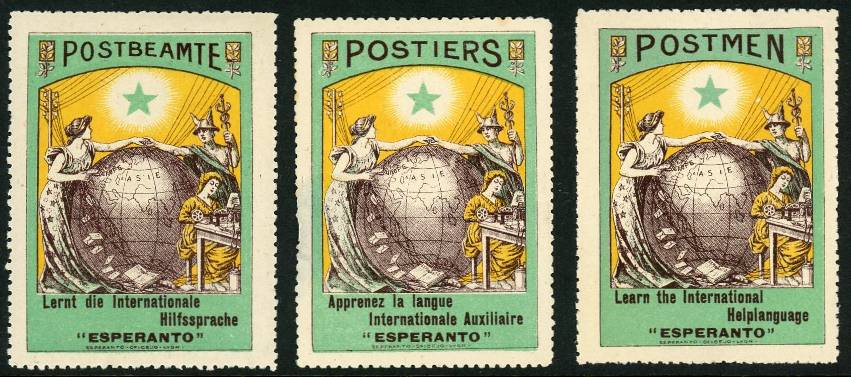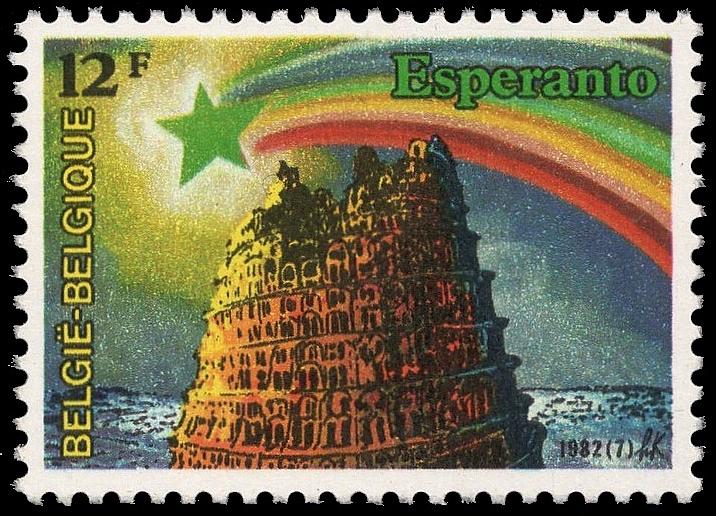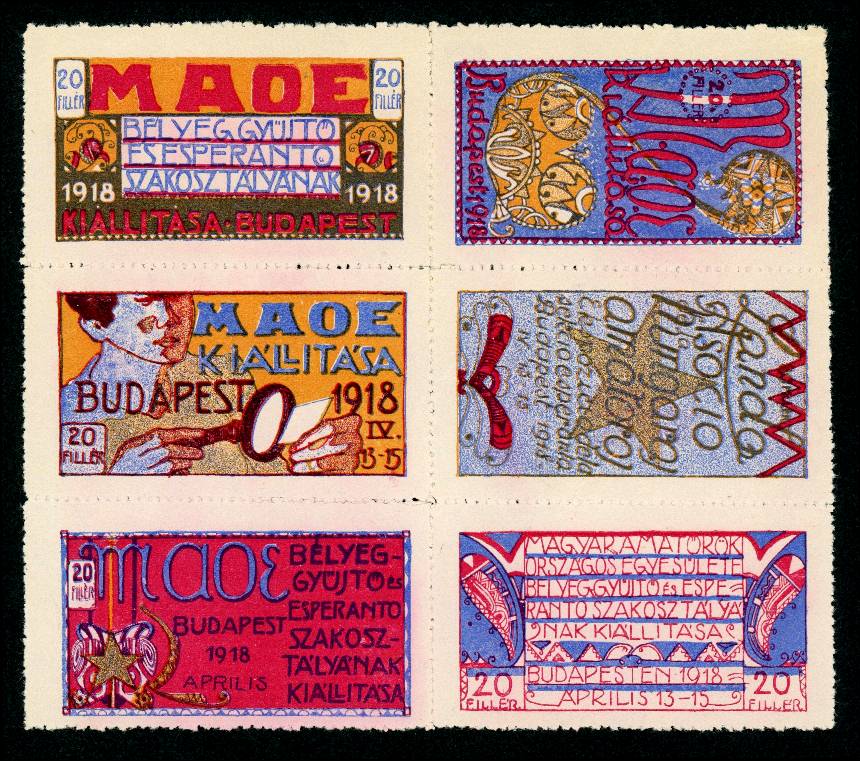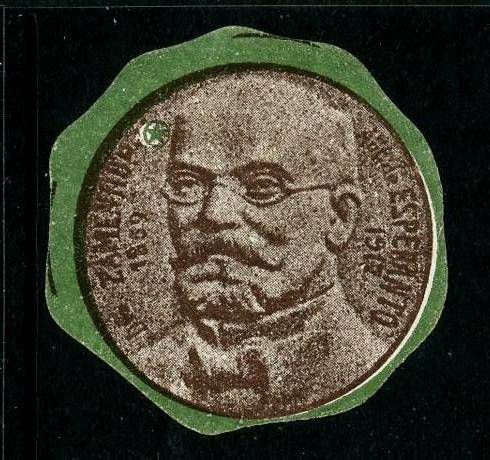|
INTRODUCTION
History of Esperanto
What are Esperanto poster stamps?
Poster stamps for:
-
International Esperanto events
-
National, regional & local
-
Esperanto promotion - in Esperanto
-
Esperanto promotion - in other languages
-
Esperanto summer camp!
-
Non-Esperanto events
-
Related Organizations
-
The Founder
-
The Green Star - Verda Stelo
-
A flag story
-
Rose Island
-
Miscellaneous
-
Ido - Esperanto derivative
|
|
Esperanto Poster Stamps

Set of 3 Esperanto poster stamps, circa 1930
There's not a lot of material on the www about Esperanto poster stamps, but
there are related pages on flickr and
Pinterest and ipernity and other social networking sites, and one can usually find
a few dozen listings on eBay.
|
NOTE that I am talking about
"Poster Stamps" - not "Postage Stamps." The items I collect
are NOT valid for postage, and were created to be stuck on the back of an envelope,
or to be pasted on the message area
of a postcard - they advertise or promote something, and were often given away free
as a premium, or distributed to
supporters of the event or cause or place they depict.
|
|
There ARE Esperanto postage stamps, issued to honor the movement or its
founder - I do NOT show those in these pages.
Well, OK, just one, the item to the right, a favorite of mine for its depiction of
the Tower of Babel, which I find ironic.
The
American Topical Association's Esperanto checklist has 193 entries, so that's
the approximate number of postal
issues with an Esperanto theme. No one has compiled a catalog of Esperanto poster
stamps, so it's impossible to
say how many there are, but there must be many thousands.
|

Esperanto POSTAGE stamp, Belgium, 1982
|
|

Esperanto poster stamp, 1905
|
Like most other poster stamps, most Esperanto poster stamps were issued in the
first half of the twentieth century, when
they were a popular collectible. The earliest Esperanto stamp I have found is the
one to the left, issued in 1905, perhaps in conjunction
with the first
International Esperanto Congress of that year, though it does not mention the
event. Its text translates
"Esperanto and Trade," presumably suggesting that speaking Esperanto will assist
one in international commerce.
|
Esperanto stamps have many purposes:
Some simply advertise and promote the
language itself.
Some advertise Esperanto events.
Others advertise events having nothing to do
with Esperanto, like Olympics Games.
The list of links on the left at the top of this page shows all the ways I found
that Esperanto has been used on poster stamps.
Click on any of those to see examples of that group.
|

Esperantist philatelic exhibition, Budapest, 1918
|
|
Certain themes and symbols occur frequently on Esperanto stamps:
|

|
The most common image is
the green star, which was chosen as the
symbol of Esperanto. So there are many Esperanto stamps with nothing but the star,
sometimes with an "E" or the word "Esperanto"
in the center. Many other Esperanto stamps include the star somewhere in the
design, so that is often the tipoff that Esperanto is the topic.
|
|
Doctor Zamenhof, the founder of the
language, is another popular theme.
|

|

"Esperanto joins nations"
|
And Esperanto's value in creating cooperation and unity is the theme of many other
stamps.
|
|
The most common overall theme I have found on Esperanto stamps is simply publicity
for the movement itself.
|

|
|
|







